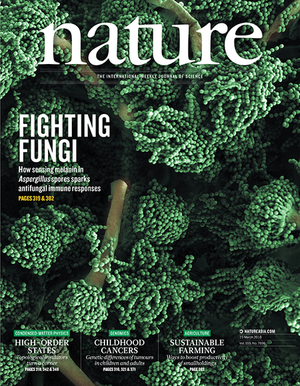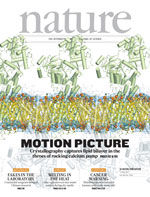
Nature is rescinding an award to a Spanish researcher whose group has at least nine retractions for problems with their published images.
The journal in 2017 gave Carlos López-Otín, of the University of Oviedo, its mid-career achievement mentoring prize for Spanish scientists — along with a physicist from Barcelona — citing:
the ability of these scientists to instil confidence in self-doubting trainees, and of their motivational skills.
But two years – and a slew of retractions — later, it seems Nature’s own doubts about López-Otín’s skills as a mentor were too great to ignore.
Continue reading Nature walks back mentorship prize for Spanish scientist with nine retractions

 When
When  Researchers have retracted a 2015 Nature paper about the molecular underpinnings of immune function after discovering they could not replicate key parts of the results.
Researchers have retracted a 2015 Nature paper about the molecular underpinnings of immune function after discovering they could not replicate key parts of the results.
 How much role did a potentially problematic paper play in the demise of a once-promising compound?
How much role did a potentially problematic paper play in the demise of a once-promising compound? A glacier researcher has retracted a Nature paper after mistakenly underestimating glacial melt by as much as a factor of ten.
A glacier researcher has retracted a Nature paper after mistakenly underestimating glacial melt by as much as a factor of ten.